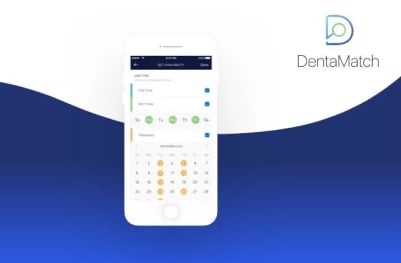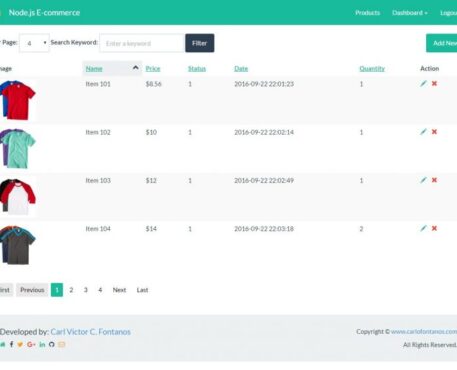Why hire retail developers? The retail sector is vast, varied, and complex. Software retail developments are no different. Growing complexities in the global business environment also increase uncertainties in the retail sector. Naturally, retail companies consider technology, specifically creating an online retail store as a big part of their plans.
They develop business applications to tap into new markets, increase market share, and improve operational efficiencies. Companies undertake crucial, high-visibility projects when developing retail apps. Only the right people can ensure the success of these kinds of projects. On the other hand, a sub-par retail developer can derail a project, so you need to make the right hiring decisions.
Hiring freelancers might seem like a good idea, however, it exposes your project to high risks. Hiring web developers and mobile developers from experienced software development companies like DevTeam.Space to undertake your build to suit retail projects is the best option. More on that later.
You need to understand the skill requirements before making any hiring decision. The general retail application software development skill requirements are as follows:
Primary skills for retail development projects
We assume that you will develop both mobile and web apps. Therefore, the primary skill requirements are as follows:
- Good understanding of web development including front-end and back-end development;
- Knowledge of JavaScript, HTML, and CSS;
- Relevant expertise in JavaScript-based web frameworks like Angular and React;
- Skills in Node.js, the JavaScript runtime environment for back-end web development;
- Familiarity with MEAN (MongoDB-Express.JS-Angular-Node.JS) or MERN (MongoDB-Express.JS-React-Node.JS) stacks;
- Knowledge of one of the leading programming languages used for back-end web development, e.g., Golang, Java, or Python;
- Android development skills;
- Knowledge of programming languages like Kotlin or Java for native Android development;
- iOS development skills including knowledge of the Swift language;
- Knowledge of SQL and NoSQL databases;
- Understanding of MongoDB-vs-PostgreSQL differences;
- Knowledge of MySQL-vs-MongoDB differences;
- Understanding of web and mobile app UI design;
- Proficiency with important IDEs (Integrated Development Environments) like Eclipse, Android Studio, Xcode, etc.;
- Knowledge of test automation frameworks like Selenium;
- Familiarity with version-control tools like Git.
Other software development skills needed for retail projects
Retail developers need the following additional skills:
- Web application security skills
Retail business apps handle sensitive data. Therefore, you need to design and implement appropriate information security solutions. Retail developers should have the following knowledge:

Get a complimentary discovery call and a free ballpark estimate for your project
Trusted by 100x of startups and companies like
- How modern solutions like MFA (multi-factor authentication) and digital signatures work;
- Steps to implement data encryption;
- How to identify and mitigate application security vulnerabilities;
- Steps to implement solutions like firewall, antivirus, etc.;
- How to research and resolve security and compliance testing issues.
- API development skills needed for retail application development projects
Retail developers should have the following API development skills;
- Understanding of GraphQL and REST APIs;
- How to develop RESTful APIs;
- Knowledge of API development and documentation tools like Postman and Swagger;
- API testing;
- How to secure APIs;
- How to host APIs using a cloud computing platform;
- Steps to design API endpoints;
- How to create rules for API requests and responses.
- Cloud computing knowledge needed for developing retail business applications
Like many other businesses, the retail sector makes significant use of cloud computing. You most likely will do so too. Look for developers with sufficient familiarity with cloud computing. Programmers should know the following:
- How to choose between different cloud delivery models like public cloud, private cloud, and hybrid cloud;
- Differences between different cloud computing platforms like IaaS (Infrastructure-as-a-Service), PaaS (Platform-as-a-Service), MBaaS (Mobile-Backend-as-a-Service), etc.;
- Strengths of the top cloud providers like AWS, Microsoft Azure, Google Cloud Platform, etc.;
- How to use different cloud services like databases, API integration, analytics, etc.;
- Various DevOps tools offered by different cloud providers;
- Strengths of top PaaS platforms;
- How to choose a suitable MBaaS platform.
- Retail industry knowledge
Retail developers need to be tech-savvy, however, they also need retail industry experience and knowledge. The retail industry represents a wide range of businesses. E.g., shopping centers fall within the ambit of this industry. Stores selling construction materials are also retail businesses. At the same time, stores selling light engineering and automation-related tools are retail businesses too. You need to look for developers with experience in specific areas within this sector.
Retail companies also serve many different kinds of customers. Take the case of mixed-use real estate. Retail companies operating in this space cater to a varied range of stakeholders. These stakeholders could include investors, property owners, property managers, land owners, etc. Building management professionals, brokerage companies, city government officials, and representatives of the local community could be the other stakeholders.
The mixed-use real estate industry caters to a full spectrum of businesses. These include apartment developers, restaurants, capital trading companies, etc.
Supply chain management knowledge can also be important in retail industry software projects. A software development team with sound knowledge of the retail sector suits complex projects better.
- Code review expertise needed for retail sector projects
Code review is different from software development. However, code review is important for the success of software development projects. You can detect defects early in the lifecycle with the help of code review.
All developers in your team don’t need review skills, however, you do need enough reviewers. Code reviewers need to be senior software developers. Look for enough retail developers with equivalent experience. They should know the key code review strategies including how to develop a test automation framework. A good test automation framework helps to cut down the time to find mistakes as well as increasing the likelihood of finding those mistakes.
- Software engineering and software development methodologies skills
Retail developers need a sound understanding of software engineering. They should have good knowledge of different software development processes like test-driven development, etc.
Developers should have a thorough understanding of testing. Programmers need knowledge of test automation. They should understand how to develop test automation frameworks.
Retail developers should understand coding guidelines. They should know about the important DevOps processes, methods, tools, and practices. Programmers need to know about the agile methodology.
- Software architecture skills needed for developing software for retailers
Retail business applications often serve multiple stakeholders. They need to deliver multiple functional requirements, which might need robust integration capabilities. These applications need to offer excellent performance and scalability. They should also be maintainable and testable. Software architecture is important for these apps.
Retail developers need a thorough knowledge of architecture. They should be software engineering-minded candidates with good knowledge of important architectural patterns.
- Competencies needed for success in retail company software projects
Retail developers should have the following competencies:
- Commitment: They should align with the mission of your organization. Retail developers should be committed to the project scope, quality, budget, and schedule requirements.
- Passion for excellence: Retail developers should take a genuine interest in delivering top-notch user experience. They need a passion for excellence.
- Teamwork: Retail developers should build effective professional relationships with other team members. They should build common ground with other team members and work toward the success of the project.
- Problem-solving skills: Programmers should work closely with other team members to solve problems in the project.
- Communication skills: Retail developers should communicate effectively with the relevant stakeholders including other team members.
- Empathy: Developers should be good at understanding the requirements from the perspective of end-users.
How can retail clients find the best software developers?
You now understand the skill requirements for retail business application development projects. Start the hiring process. This involves the following steps:
- Choose the right platform to hire retail developers
Retail business application development projects are undertaken to gain access to new markets, improve operational efficiency, or for other important reasons. Failure isn’t an option for you here. You need the right people to succeed. On the other hand, incompetent people will likely derail the project. You ought to make the right hiring decisions, and choosing the right hiring platform is one of them.
Hire expert developers for your next project
1,200 top developers
us since 2016
You might think that hiring freelancers is a good decision. Freelance platforms allow you to negotiate a low hourly rate, which saves software development costs. We don’t recommend this approach though.
Retail software development projects can be complex. You will find it hard to manage them with part-time freelancers. You might not get enough bandwidth from freelance developers. Managing part-timers is hard, and it will be harder with remote freelancers.
You don’t get any project management support from freelance platforms. Freelancers might leave your project in the middle of it. If they do, you will need to find replacement developers. Your project might process sensitive data, and you don’t know how freelancers will handle this data.
We recommend you hire full-time retail developers from a trustworthy software development company like DevTeam.Space. Our dedicated developers are highly skilled.
We have a stringent vetting process. We routinely encourage them to upskill. Our developers are experienced and motivated. We train them in our AI-powered agile process.
We provide project management support. At DevTeam.Space, we treat your sensitive data with utmost care. Mitigate project risks by hiring retail developers from us.
- Interview retail developers
After deciding on a hiring platform, you have posted your job ad. You now need to interview candidates. You can ask for help from colleagues if you don’t have the relevant expertise. Alternatively, you can consult our sets of interview questions, e.g.:
- Android interview questions;
- iOS interview questions;
- Software engineer interview questions;
- Java interview questions;
- Python interview questions;
- Ruby on Rails interview questions;
- JavaScript interview questions;
- Node.js interview questions;
- SQL interview questions.
Cover all technical skill areas when asking questions. You should ask questions that help you assess the hands-on experience of candidates. Therefore, don’t ask only theoretical questions.
Check how developers solved problems in their past retail sector projects. Explain your project requirements to candidates, and ask how they can meet them. Expect specific suggestions and not jargon.
- Onboard retail developers
You have selected competent developers. Onboard them effectively so that they can become productive quickly.
Describe your project background. Explain the functional requirements. You should explain the non-functional requirements (NFRs) and technical solutions too. Share the relevant documents with the new team.
Provide the necessary access to the new developers. They need access to the code repository and other relevant tools. You should introduce the new team to your existing team, subsequently, you should explain their roles and responsibilities.
Describe the project plan and schedule. Highlight the important milestones. You should explain the work approval process. Set up a communication process with the new developers and establish accountability.
Interviewing tips for retail brands to hire software developers
Check out the following interviewing tips for hiring retail developers:
- Look for separate developers for different work streams
You might develop both web and mobile apps for your retail business. Handle them as different work streams and hire separate developers for them. Trying to find developers with web, Android, and iOS development skills might not be practical.
- Look for developers that created scalable and performant retail apps
The complexities and competitiveness of the retail sector make it important to offer top-notch user experience to end-users. You need retail developers that have created performant and scalable retail apps before.
Hire expert developers for your next project
- Hire a cohesive DevTeam.Space team instead of individual developers from different platforms
You might need multiple developers. Hiring individual developers from different platforms will result in them working in silos. Hire a cohesive team from DevTeam.Space instead.
Sample interview questions when hiring for retail industry software development jobs
Ask questions that help you assess the hands-on skills of candidates, e.g.:
- Describe different project challenges you faced in a retail industry project.
Answer:
This is an open-ended question, and you can expect candidates to describe their individual experiences. Some of them might talk about requirement-related issues. A few developers might talk about the limitations of a particular technology stack. Some candidates might refer to security and compliance testing gaps. There are lots of different answers, look for substance, honesty, skills, problems overcome, and good communication skills.
- Explain how you chose a particular software architecture pattern over another in a retail industry project.
Answer:
This open-ended question is mostly for senior developers. You can expect them to mention different decision-making factors. They might have chosen one architecture pattern over another due to the scalability requirements. Some developers might have chosen the microservices architecture pattern, and they might explain the reasons.
- Describe a few aspects your team had considered during a retail mobile app UI design.
Answer:
In reply to this open-ended question, candidates might talk about how they used platform-specific UI design guidelines. They might describe how they decided on the navigation menu pattern. Developers might describe how their team decided on the color schemes and designed icons.
Submit a Project With Zero Risk
Successful business application software development is crucial for retail stores and other retail industry companies. A retail development project can be complex. You need to find high-quality software retail developers to get these projects right. Why take the risk of hiring anything but the best retail software developers?
DevTeam.Space is a community of experienced field expert software developers. All of our dedicated developers have been vetted and trained in our AI-powered agile process.
We provide only the developer or development team with relevant expertise to your development project. If you would like to learn more, simply fill out our DevTeam.Space product specification form and one of our experienced account managers will get in touch to answer any questions you might have.













